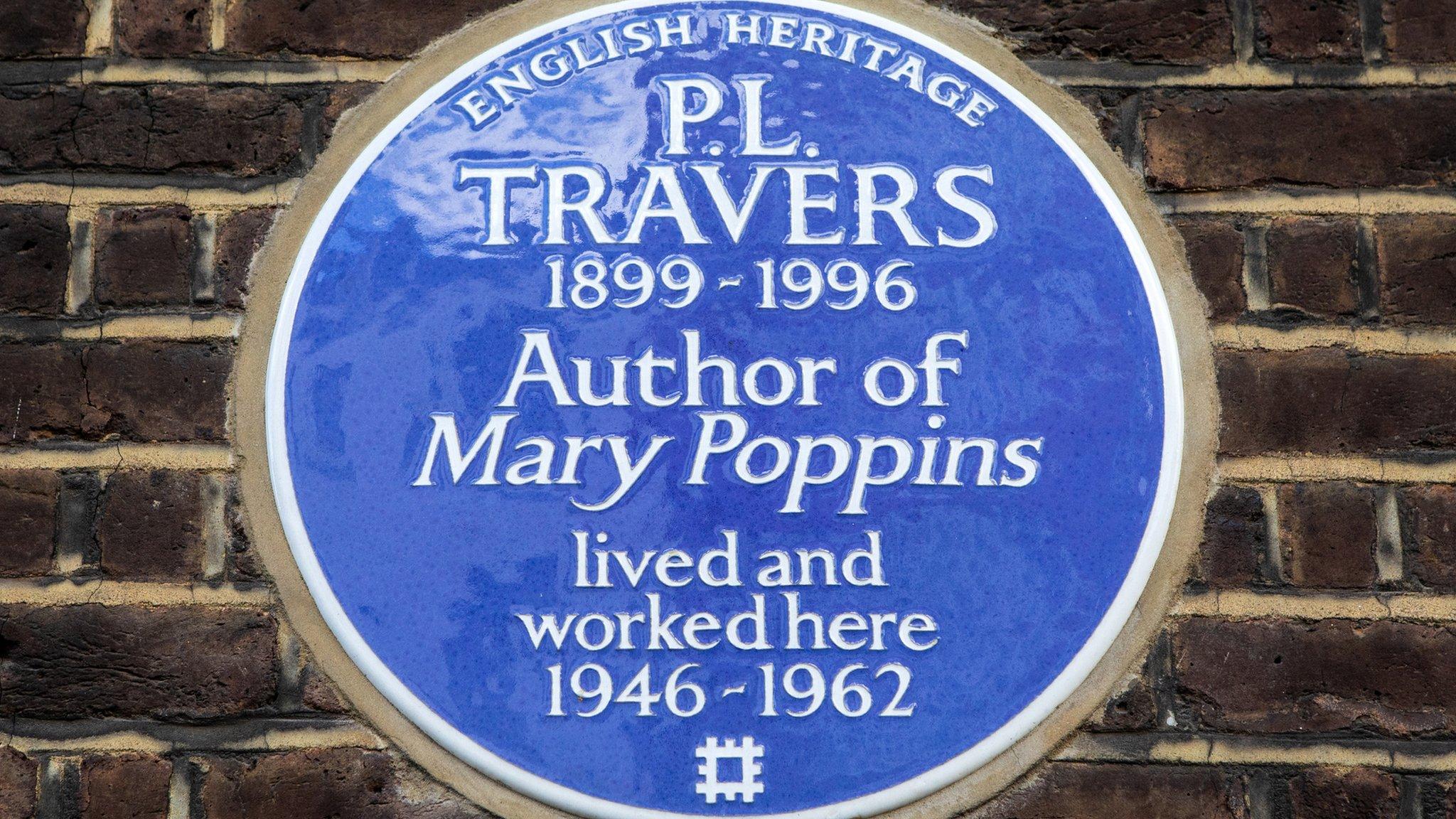Blue plaque honours adventure playgrounds pioneer
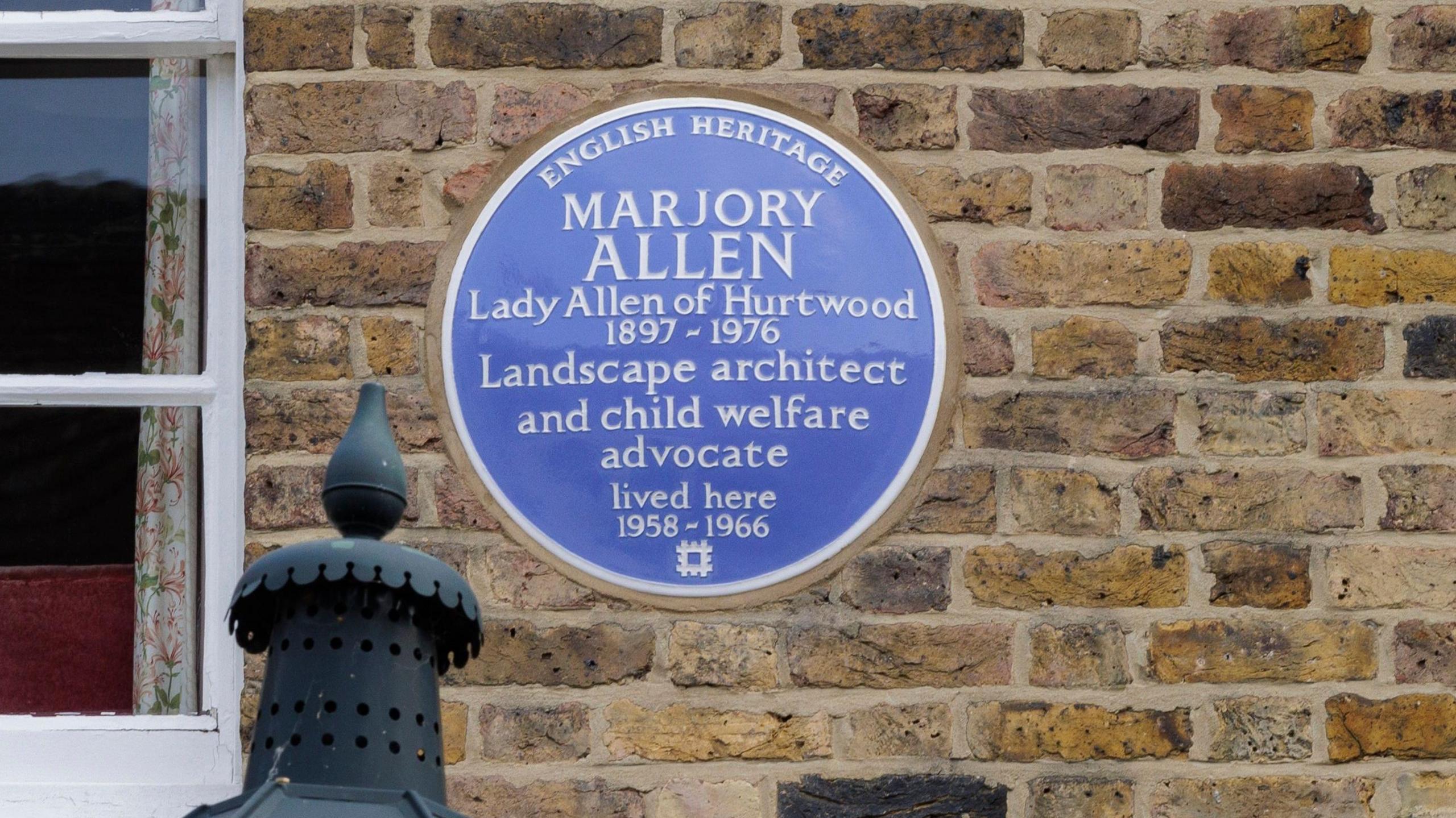
The plaque has been placed on Lady Allen's former home in Chelsea
- Published
A blue plaque dedicated to Marjory Allen, Lady Allen of Hurtwood, has been unveiled at her former south-west London home.
Lady Allen was known for creating adventure playgrounds for children in London in the 1950s.
English Heritage said she was also a "pioneering landscape architect, and a tireless campaigner for child welfare".
The plaque has been placed on the wall at 22 Lawrence Street, Chelsea, where she lived between 1958 and 1966.
In the 1950s, Lady Allen had been inspired by a playground she viewed in a housing estate in Copenhagen and brought the idea to the UK.
With her mantra "better a broken bone than a broken spirit", she helped create a playground on a former bombsite in Notting Hill and another at Lollard Street, Lambeth.
English Heritage said the latter had to be insured "to answer criticism that it was dangerous to let children dig, build, carve, and make fires and dam streams".
Lady Allen coined the term "adventure playgrounds" to describe the spaces and with the London Adventure Playgrounds Association went on to create 61 adventure playgrounds in the capital.
The blue plaque in her honour was unveiled by her nephew Richard Gill.
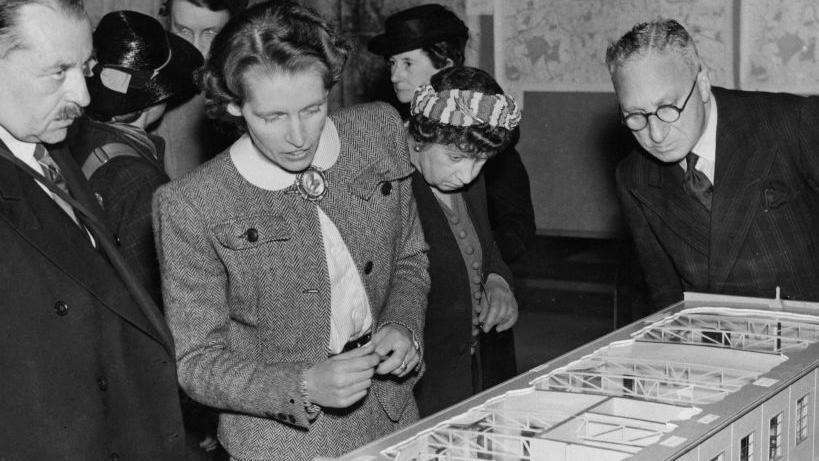
Lady Allen's mantra was known as "better a broken bone than a broken spirit", English Heritage says
Born in Bexleyheath, south-east London, in 1897, Marjory Allen had become Lady Allen of Hurtwood when her husband Clifford was made a peer in 1932.
Before pioneering adventure playgrounds, she had studied horticulture, was vice president of the Institute of Landscape Architects and had played an integral part in nursery education and children's welfare during World War Two.
As chair of the Nursery School Association, she challenged "government strategies aimed at persuading women to work full-time in munitions factories, leaving their babies and toddlers in day nurseries, run by the Ministry of Health", according to the Lady Allen Trust, external.
"Lady Allen fought to give women a choice to work or stay at home for the first two years of a child’s life," the trust said.
A debate, it says, that continues today.
Lady Allen co-designed the first prefabricated nursery in Britain in 1941 and within a year there were 200 nurseries built, based on their model.
She died in 1976, aged 78.
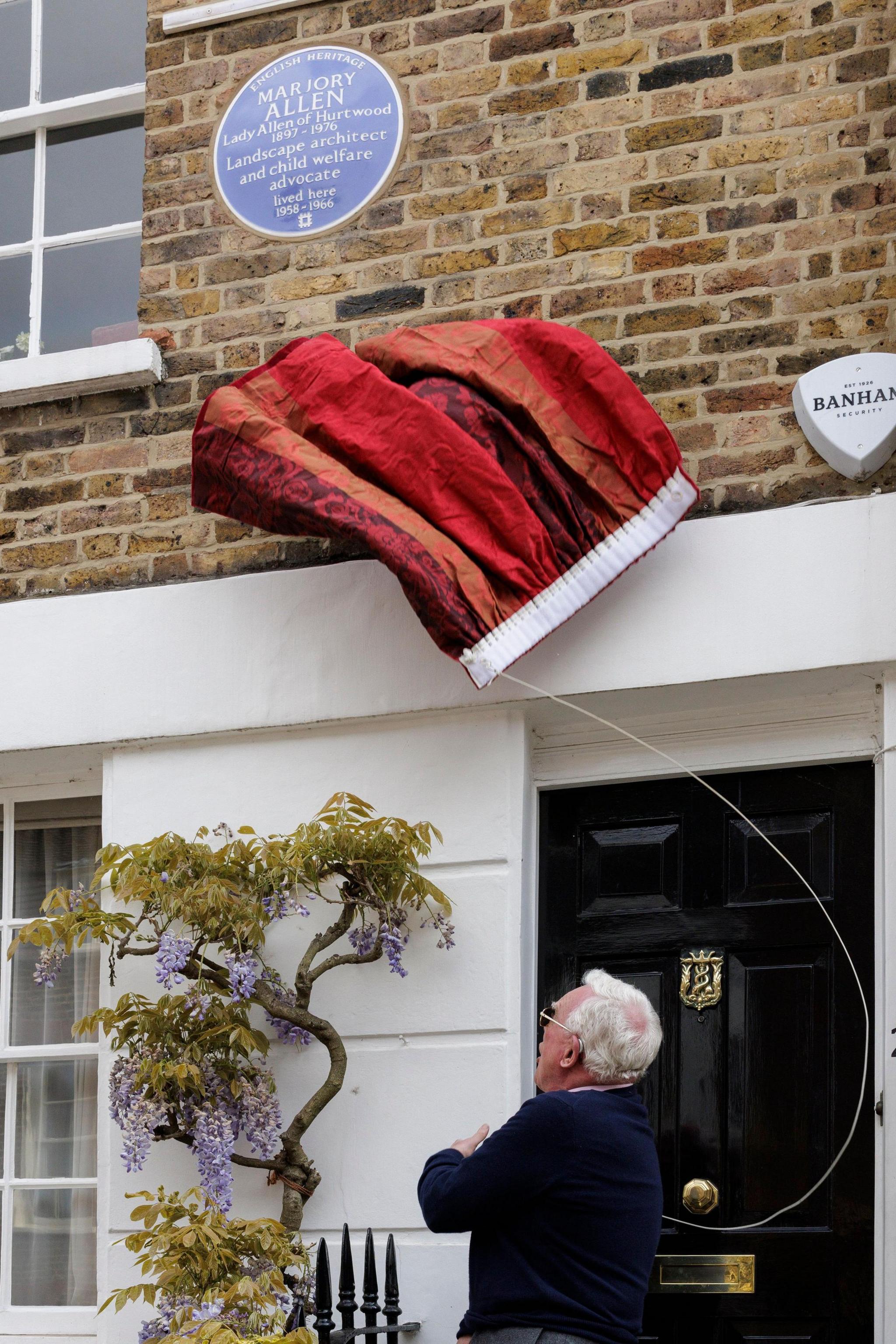
Lady Allen’s nephew Richard Gill unveiled the plaque
Lady Allen's blue plaque is one of about 1,000 on buildings in London, marking notable people who lived in the capital.
English Heritage, which runs the scheme, said they "link the people of the past with the buildings of the present".
The London blue plaques scheme was started in 1866 and is thought to be one of the oldest in the world.
Listen to the best of BBC Radio London on Sounds and follow BBC London on Facebook, external, X, external and Instagram, external. Send your story ideas to hello.bbclondon@bbc.co.uk, external
- Published24 January 2024

- Published19 February 2024
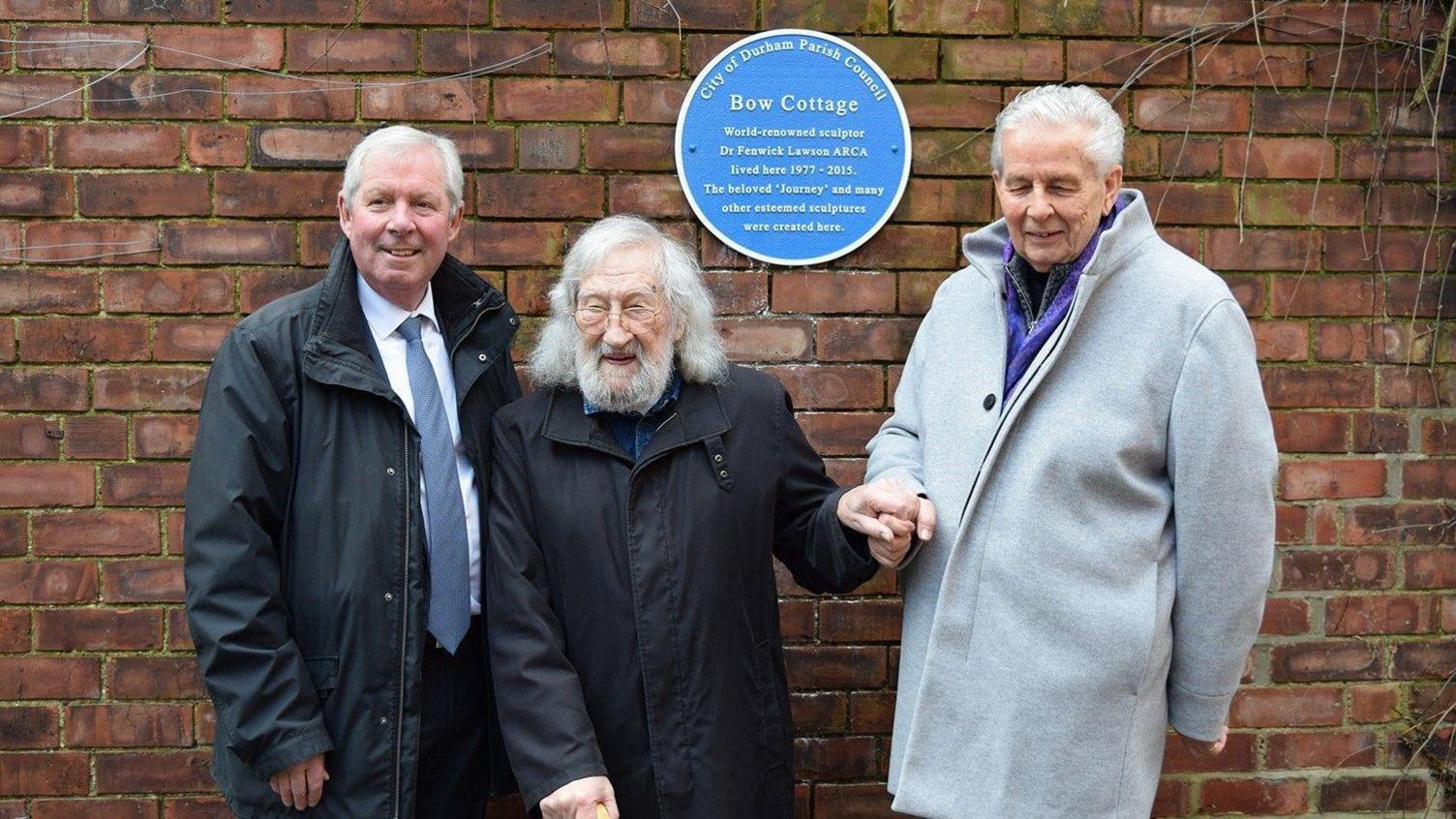
- Published12 January 2024
